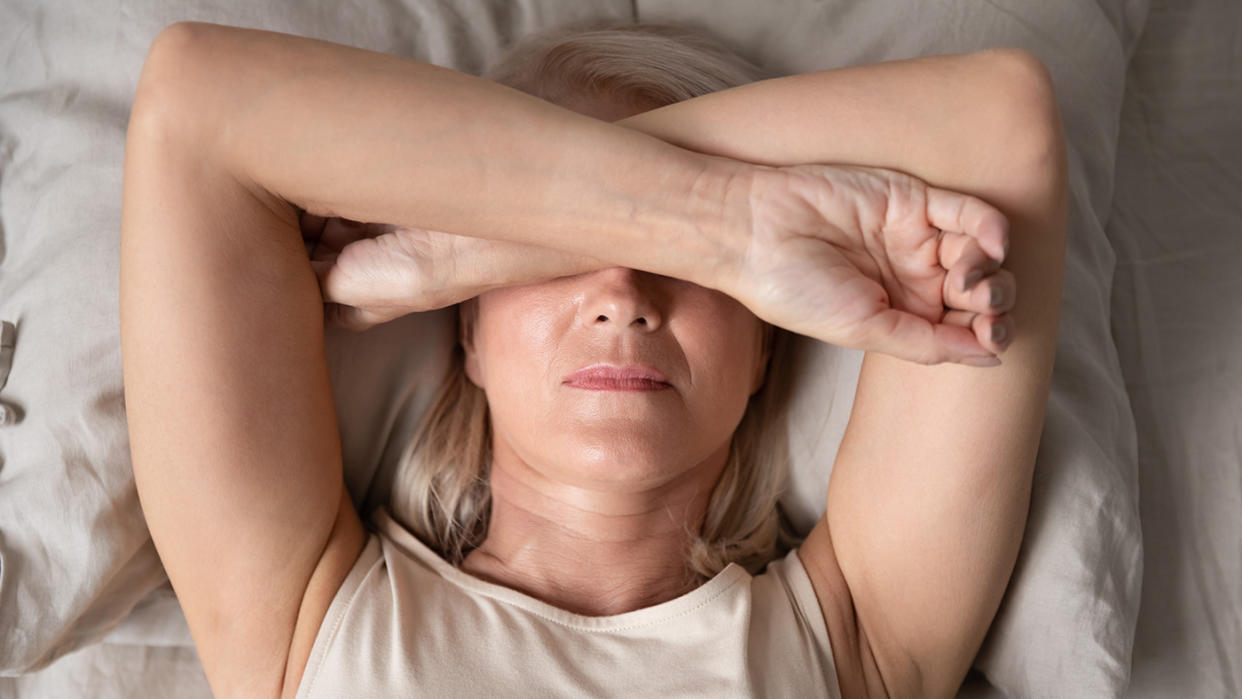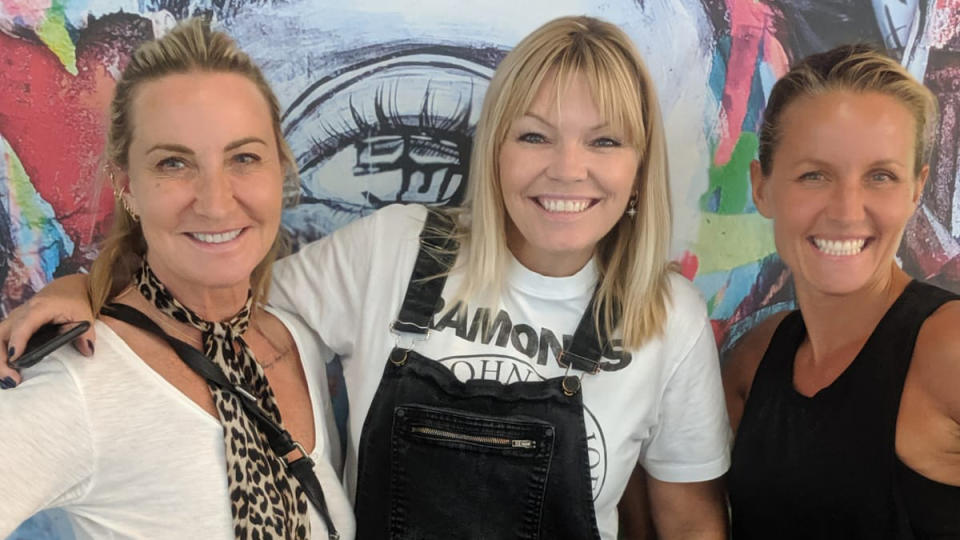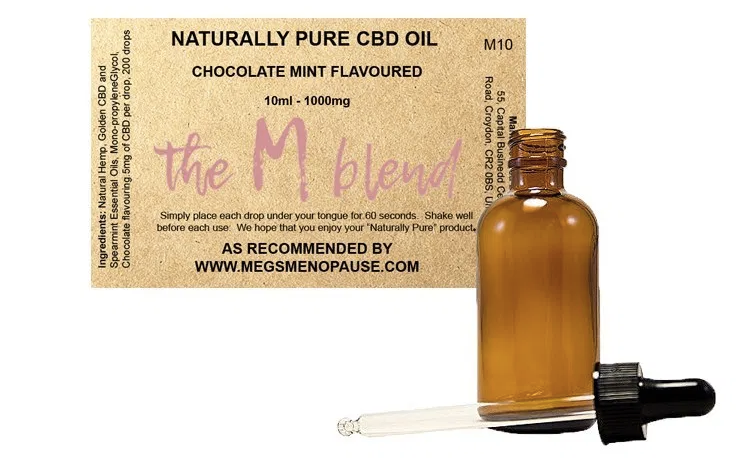Moody? Tired? Forgetful? You may be peri-menopausal – even in your 30s!

There are three things women can be certain of in life: death, taxes, and the menopause.
Many people associate the latter with hot flushes and mood swings, and expect to deal with these well into their 40s. But there are actually many more symptoms than these to signify you’re moving into that stage of life.
And menopausal symptoms can start long before your menopause actually beings.
The peri-menopausal period starts as a whole shift in your hormone-production cycle takes place when the ovaries begin to produce less oestrogen and progesterone, leading to a host of difficult symptoms.
Meg Matthews – a Britpop party girl associated with the Primose Hill Set in the ’90s – has become the poster girl for successfully managing the menopause. But when she first moved into the perimenopausal phase, she thought she was going crazy.
Speaking on White Wine Question Time, she told host Kate Thornton that she was feeling really awful, but had no idea what was causing it.
“All of a sudden everything that was happening to me... it was nothing that I could relate to,” she said.
“I didn't even know what the word perimenopausal was. I just thought that the menopause was no periods and a hot flush, which I didn't get.
“I had just the worst anxiety, overwhelmed by life, couldn't leave the house, night sweats, couldn't drive the car… Foggy brain, headaches, inflammation of the joints… I couldn't even walk to the toilet. I was like a 90-year-old woman.”
She thought she was paying the price for her partying days, and only realised she was going through menopause while attending an AA meeting.
“When I came out this lovely woman came over to me and she said, 'You're not going mad, Meg; you're going through the menopause'. She was the one who basically just pointed me in the right direction.”
What are the symptoms?
So, how do you know you’re going through the menopause? Long before your periods stopping or becoming irregular, there are many other symptoms that can signify this transition in your life has begun.
READ MORE
Meg Mathews grows her own cannabis to combat menopause symptoms
The menopause timeline: What to expect from each stage
Meg Matthews: 'Removing fake boobs the best thing I ever did'
“One in a hundred women from the age of 40 to 45 will be perimenopausal,” explains Matthews.
Her website, Meg’s Menopause, list all the 34 symptoms associated with it, including burning mouth, hair loss and changes in body odour.
Meg suggests looking out: “...if you have a week where you feel quite tearful and it's a bit different to PMS. You feel more weepy, you feel very flat, you feel overwhelmed by life. You're getting these feelings that you've not really felt before...”. Then it’s time to consult your GP.
If you’re the right candidate, they might opt to send you for a blood test to measure a hormone called FSH (follicle‑stimulating hormone), which is found in higher levels during the menopause.
Getting the diagnosis
The good news is there are plenty of options to help treat the symptoms, which means you don’t have to suffer.
The first step is your GP. However, not all GPs are menopause savvy. During their training to become doctors, they only spend a few hours studying the menopause. So it pays to be prepared before you pay them a visit.
White Wine Question Time host Kate Thornton told Meg she had been lucky that her GP was so up-to-date on all things menopausal.
“My local GP happens to do a lot of work on telly,” Kate told Meg on the podcast. “She's brilliant. She's called Doctor Rosemary Leonard and she's kind of the BBC news doctor, which means that any new study that comes out she's across it.”
Kate approached her GP when she was 35 as her mum had an early menopause and she was feeling really awful. Luckily, her GP has access to studies and decided to treat her with a contraceptive pill and a low-level antidepressant.
“It took me a while to kind of find the right mix,” explained Kate. “But I've been on that forever. Now if I didn't have her, where would I be here? I'm just lucky that I have access to somebody that's really knowledgeable and she's written a book about the menopause.”

Kate’s advice? Research your symptoms and go in knowing what you need to ask.
“It's about knowing what is available to them,” she said. “Resources are there. The NHS will facilitate you in your area if you know what you're asking for.”
Thankfully there’s a whole host of resources available to help inform you. As well as Matthew’s site, TV presenter Andrea McLean has written a book Confessions of a Menopausal Woman and runs a site, This Girl Is On Fire, which has lots of practical advice about dealing with the menopause.
The NHS and NICE – National Institute for Health and Care Excellence – also have comprehensive information on symptoms and treatment.
Managing the menopause
Meg said because she didn’t know she was perimenopausal, she was actually on the wrong kind of drugs.
“I was on loads of antidepressants,” she revealed. “I didn't leave the house because I had no clue that I was going through the menopause. I thought it was my whole lifestyle that had caught up with me from the nineties: too many late nights.”
“And then the minute I slapped a bit of oestrogen gel on and a bit of HRT, within four days I was feeling better.”
HRT – Hormone Replacement Therapy – is designed to offset the effects of reduced oestrogen levels. It was long associated with a higher risk of cancer, but these side effects have been pretty much unsubstantiated and generally it’s seen as fairly risk-free now.
Menopause Matters, a website that provides a great deal of information about the menopauses, says that HRT is “is the most effective treatment available, reducing symptoms by 70-80%.” Many experts say the benefits far outweigh the negatives and you can start on a low dose to begin with.
If you’ve had breast cancer or are seen as high risk, your doctor can discuss various alternatives. But make sure you chat to your GP before trying any alternative medicines as they may interact with any prescribed medicine that you’re on.
Alternatives might include Cognitive Behavioural Therapy or a drug called clonidine, which is normally prescribed for lowering blood pressure but is also great at reducing hot flushes.
There are also other alternatives you can try. Some women swear by Black Cohosh or Wild Yam for reducing night sweats and hot flushes, while St John’s Wort can help with low mood and anxiety.
Meg also recommends CBD oil, which contains cannabidiol, an ingredient naturally sourced from hemp plants. She credits it with making her feel much calmer and less anxious.

Treatments such as acupuncture and reflexology can also be useful, while eating a healthy diet and exercising can also keep symptoms at bay.
Just as every woman is different, so is the menopause.
As Meg says on her website, “Every woman’s journey is different; in my case I have never had a hot flush but some of you may have them all the time!”
The key is to just make sure you seek help as soon as you need it – and do you research. As Matthews says, she never really knew exactly what the menopause entailed.
“I think I started [the perimenopause] when I was about 39 because I think I used to self-medicate more then, when I used to get those feelings,” she said. “I would drink or do something to take away those feelings. That sinking feeling that you can't leave the house. No-one ever told me that was anything to do with the menopause.”
Hear Meg chat more about the menopause, as well as what it was really like during those Britpop days alongside pal Davinia Taylor on this week’s episode of White Wine Question Time. Listen now on iTunes and Spotify.


